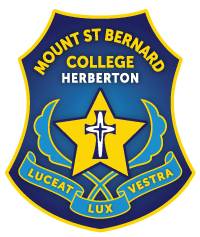Procedures for Accident or Illness
Minor Ailment
- The student will report to the health centre or College office where his/her attendance will be recorded on the daily register.
- Only the Registered Nurse on duty will assess and treat the student as required. If further care is required for day students parents will be notified. If further care is required for boarders then boarding staff will be notified.
Minor Injuries
- Student to report to the health centre where assessment and first aid will be administered.
- If the student is injured while playing sport he/she should report to the coach/teacher in the first instance and then to the registered nurse on duty.
- Treatments will be documented in personal medical records and if presented, the student’s diary will be stamped.
Serious illness/ injury requiring a doctor or hospital
- The parent/ guardian will be contacted if at all possible according to the information available on the medical form.
- The school nurse will be called to the site of the injury/illness if at all possible and/or if appropriate, the student will be transferred to the health centre where first aid will be administered.
- The nurse on duty or other member of school staff (if the nurse is not available) will assess the student and if required the student will be transported to the doctor/hospital.
- In an emergency or on the advice of an attending doctor, the student will be taken by ambulance or other appropriate vehicle to the nearest available hospital.
- In the event of injury or illness to a student requiring urgent hospital or medical treatment including but not limiting to injections, blood transfusions and the like and where a parent or guardian is not readily available to authorise such treatment the school nurse or other member of school staff (if the nurse is not available) is authorised to give the necessary authority for such treatment without the school or such staff member or any other employee or agent of the school incurring any liability to the student, parent or guardian in so doing.
- The parents or guardians agree to be liable for and indemnify the school, its employees and agents in respect of all costs and expenses arising directly or indirectly out of such treatment.
Medication Procedures
- Parents are requested to inform the health centre of any medications being taken by students.
- All medications taken during the school day should be stored in the health centre unless other arrangements are made with nursing staff.
- All medications administered by the school nurse will be recorded.
Prescription and restricted medications
- Assistance will be given by the school nurse in the administration of prescribed medication, when requested in writing by parents/guardians or as prescribed by a doctor.
- Assistance will be given by the school nurse in the administration of restricted medication (such as Rytalin, Dexamphetamine) after receiving documentation from the doctor and parent/guardian.
- Instructions regarding changes to the original dosage of long term or restricted medications must be in writing from the doctor and parent/guardian.
- The school nurse may only administer or assist with the administration of any medications IF the medication is provided in its original container with a label clearly displaying the student’s name and the required dosage.
- All medication will be stored in a locked cupboard in the health centre.
Reducing the Spread of Infections
Infections with or without illness, are common in children. When children attend school they are exposed to a large number of children, increasing the opportunity for the spread of infectious diseases. It is not possible to prevent the spread of all infections and illnesses within schools, however a lot of illnesses from infectious disease can be prevented.
Please refer to the Recommended Exclusion Periods for Infectious Conditions produced by Queensland Health.
Headlice
Mount St Bernard College has a responsibility for minimising risk to all school community members of being affected by head lice while at school. Parents too, have responsibility for control, dectection and treatment of head lice.
What happens if your child gets head lice?
DON’T PANIC – Most children have head lice at some time in their school life. Begin treatment immediately and check for effectiveness. (For more information see the “Managing Head Lice at Home” package available on the Queensland Health Website).
Send your child back to school as soon as effective treatment has commenced. Your child is not a risk to others as long as treatment has commenced.
Let the College know so that we may advise all families to check every two days (and treat if head lice are found). This decreases the chance of your child getting head lice back again.





